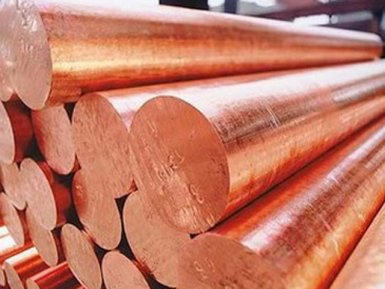Annealing, quenching and heat treatment of tin

Are you interested in annealing, quenching and heat treatment of tin? Supplier Avek Global proposes to buy tin of domestic and foreign production at an affordable price in a wide range. We will ensure the delivery of products to any point of the continent. The price is optimal.
Relevance
Pure tin is practically not subjected to heat treatment. Firstly, because of the initial softness and plasticity of the metal, and, secondly, because of the danger of an allotropic transition into the so-called «gray tin», which is characterized by high fragility. Therefore, all types of heat treatment are applied to tin alloys. Thermal treatment of alloys rich in tin does not provide an effective and uniform hardening. The melting point of tin is 232 ° C, and therefore the room temperature (about 295 K) is more than half of the absolute melting point. It follows that recrystallization and reduction can occur even at room temperature.
Double alloys
Heat treatment of tin alloys, used for bearing babbits, which contain a significant percentage of tin. Sn-Sb, Sn-Bi, Sn-Pb and Sn-Ag alloys can be quenched and aged. The greatest increase in strength obtained in binary tin-antimony alloys occurs in an alloy that contains 9% Sb.
Triple alloys
During the investigation of the strength and hardness of ternary alloys containing up to 43% Cd and 14% Sb, it was found that the cadmium effect in the tin phase of the terminal solution (alpha) is much greater than that of antimony. The presence of the sigma phase (mainly Sb-Sn) does not affect the strength or hardness, but the presence of the primary epsilon (Cd-Sb) destroys the useful mechanical properties. Therefore, alloys containing cadmium are commonly used in compositions that limit the formation of the primary (Cd-Sb) phase.
Combination of strength and plasticity
the optimum combination of strength, ductility and hardness is obtained in alloys that have fine sigma precipitates and epsilon phases in the alpha matrix or fine-dispersed epsilon in the alpha matrix with eutectoid (α + γ). These structures are usually achieved by quenching or rapid cooling at elevated temperatures to avoid precipitation of primary sigma and epsilon. Supplier Avek Global proposes to buy tin of domestic and foreign production at an affordable price in a wide range. We will ensure the delivery of products to any point of the continent. The price is optimal.
Bearing babbits
Tin-based alloys containing 7 to 10% Sb and 0 to 3% Cd are referred to as bearing babbitts, which are used at moderately elevated temperatures. In this composition range, it has been found that alloys containing 0.5 to 2% Cd can be significantly enhanced by heat treatment. Optimal properties (tensile strength of 92 MPa) were obtained in Sn-9Sb-1.5Cd alloy, quenched from 220 ° C, followed by holding for 1000 hours at 140 ° C. This alloy consists of finely ground sigma and epsilon phases in matrix alpha.
Sintered semifinished products
The hardness values of products from sintered tin semi-finished products made by machining metal can be achieved by heat treatment in the temperature range from 110 to 150 ° C. The tin alloy containing 6% Sb and 2% Cu solidifies to 90% hardness of the cast material after annealing for 1 hour (t ° 200 ° C). Longer annealing periods in the range of lower temperatures have less, but similar, effects upon reduction after softening.
Buy. Supplier, price
Are you interested in annealing, quenching and heat treatment of tin? Supplier Avek Global proposes to buy tin of domestic and foreign production at an affordable price in a wide range. We will ensure the delivery of products to any point of the continent. The price is optimal. We invite you to partner cooperation.


